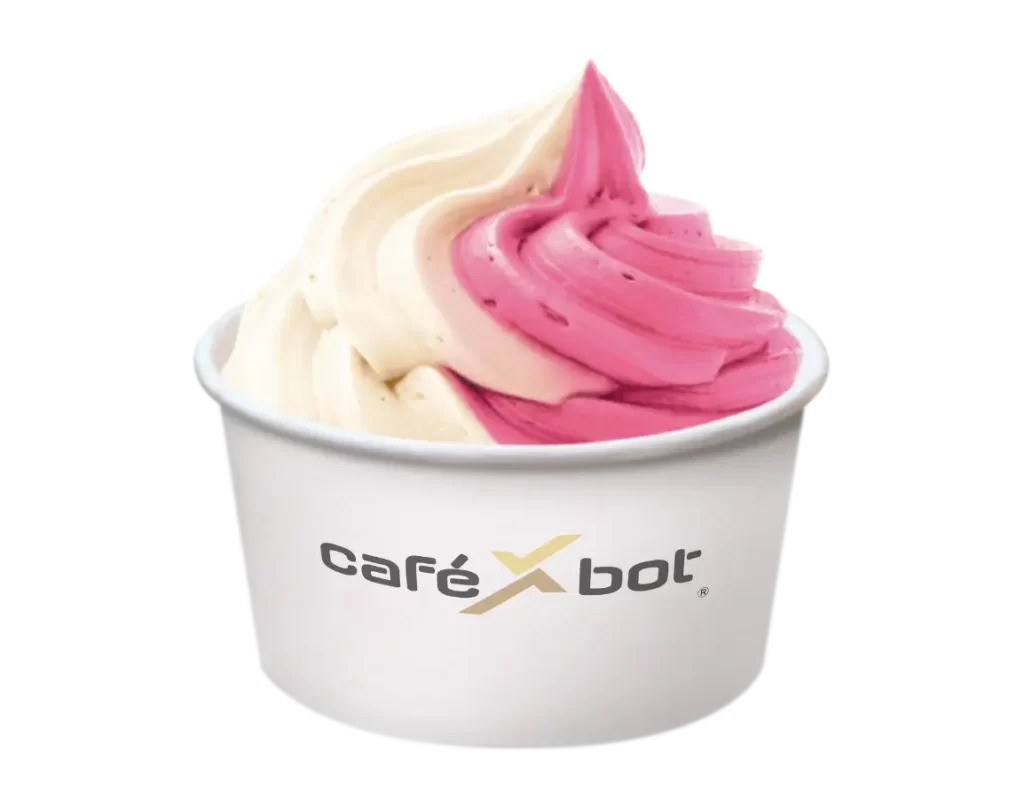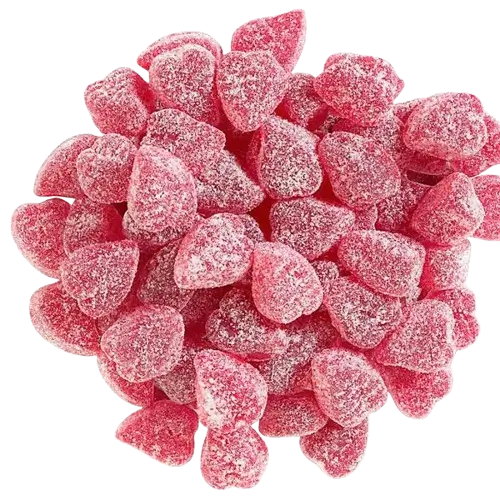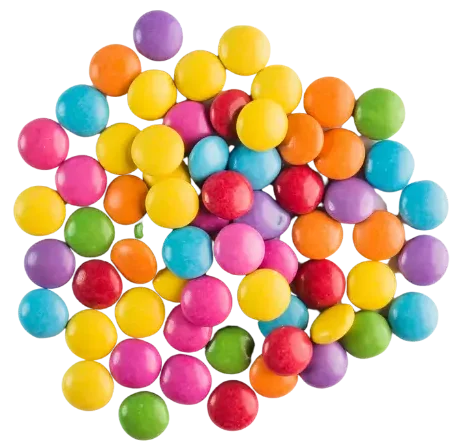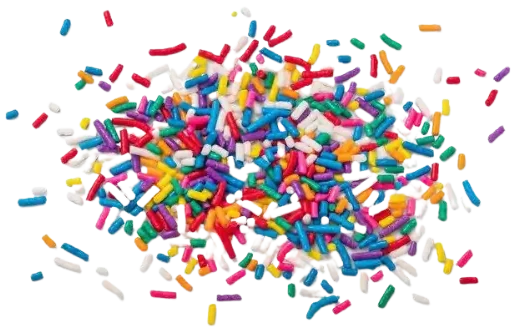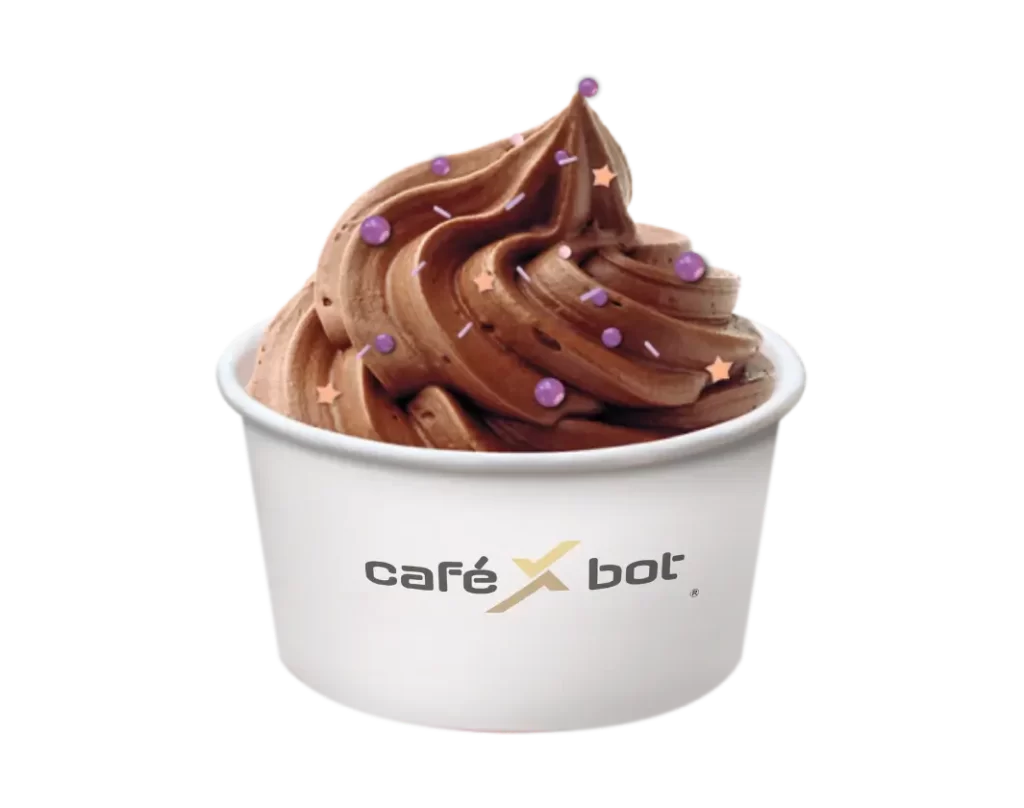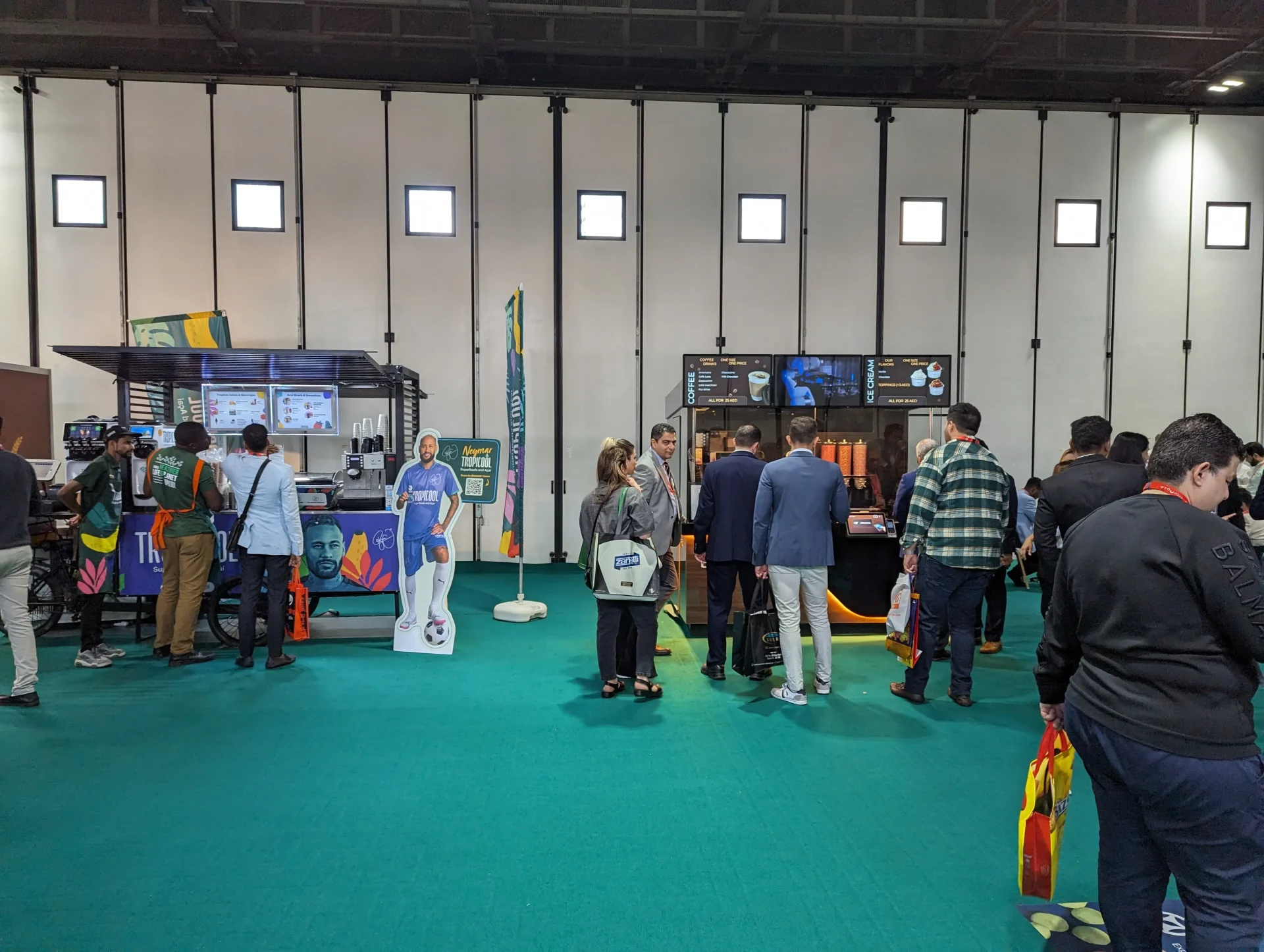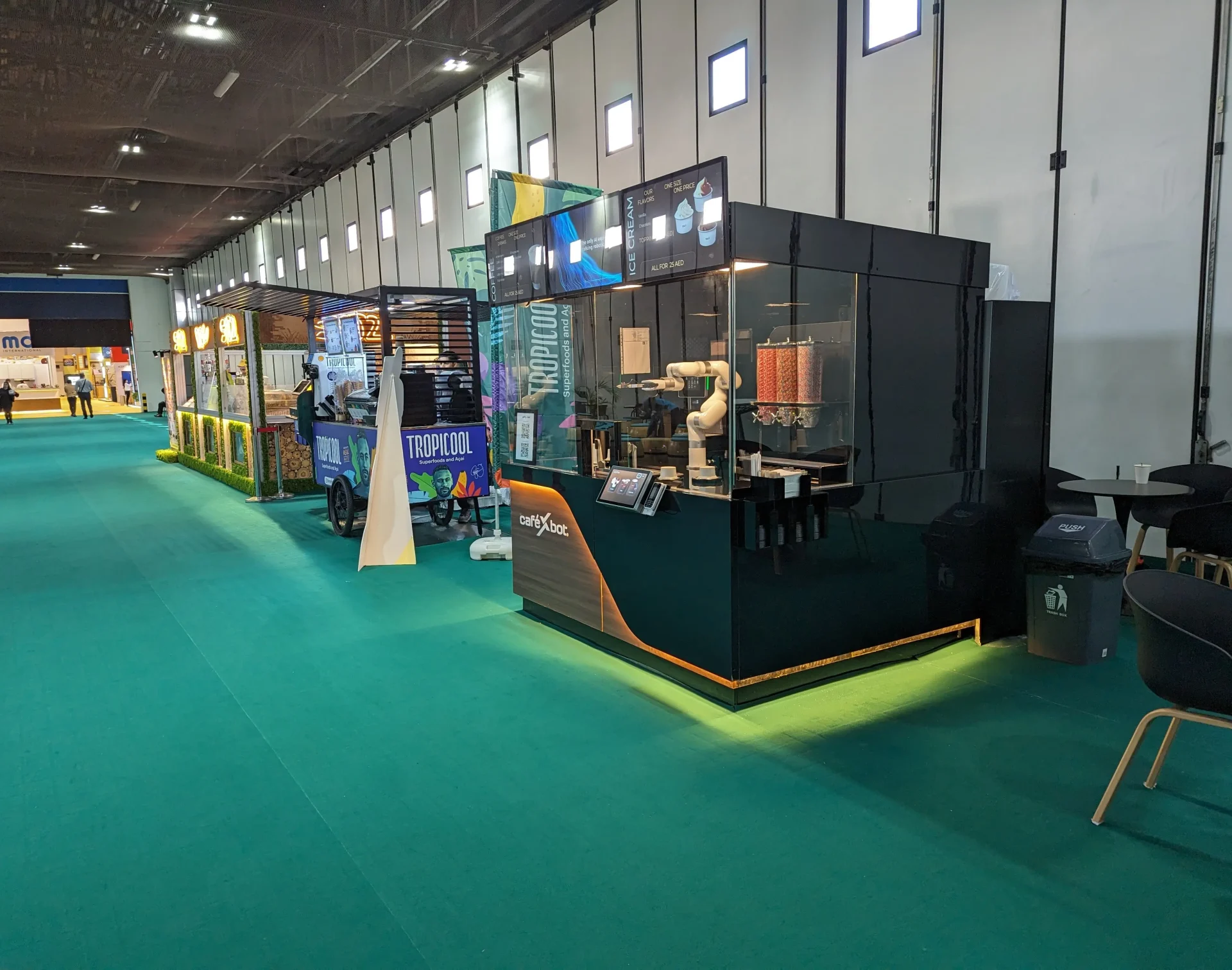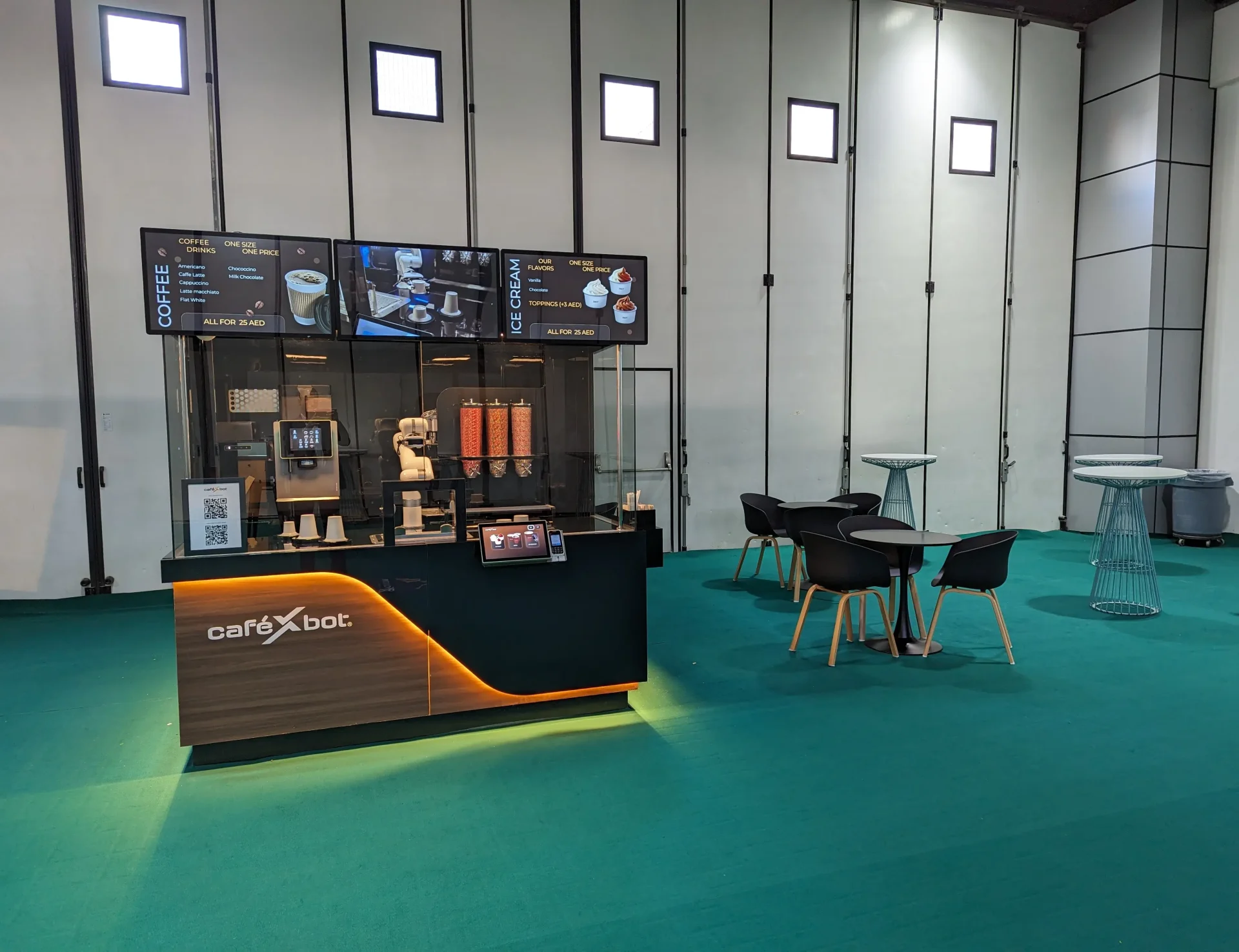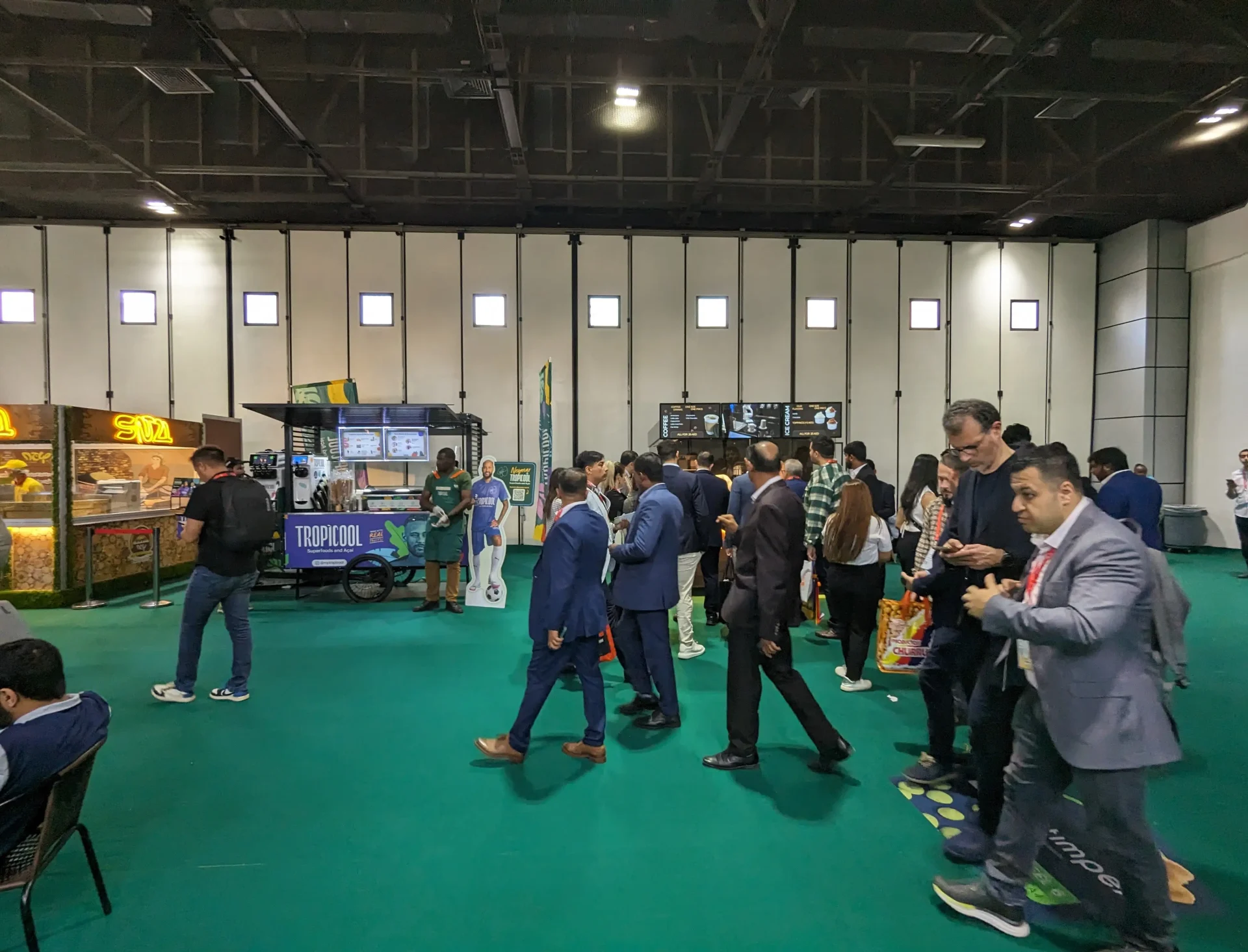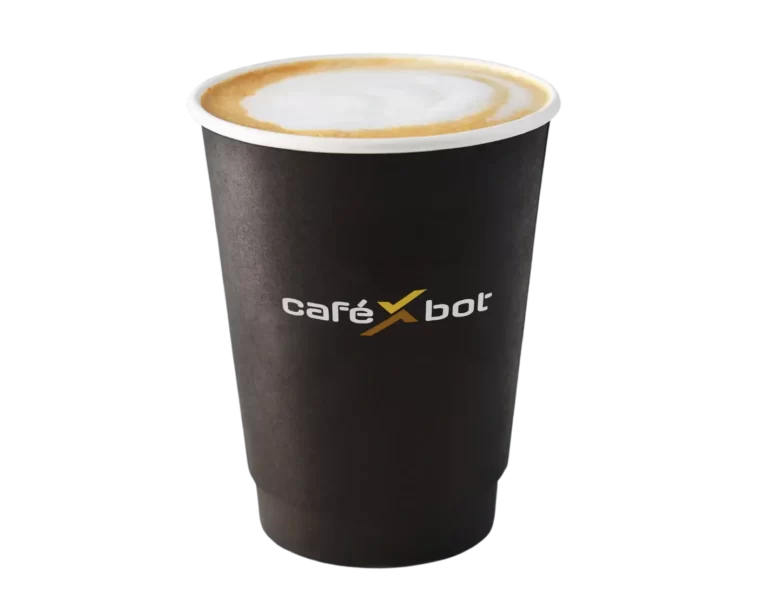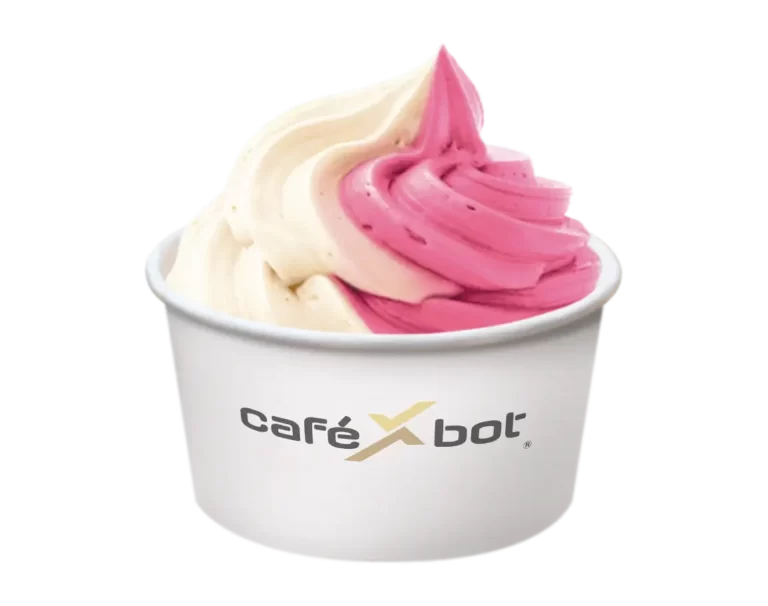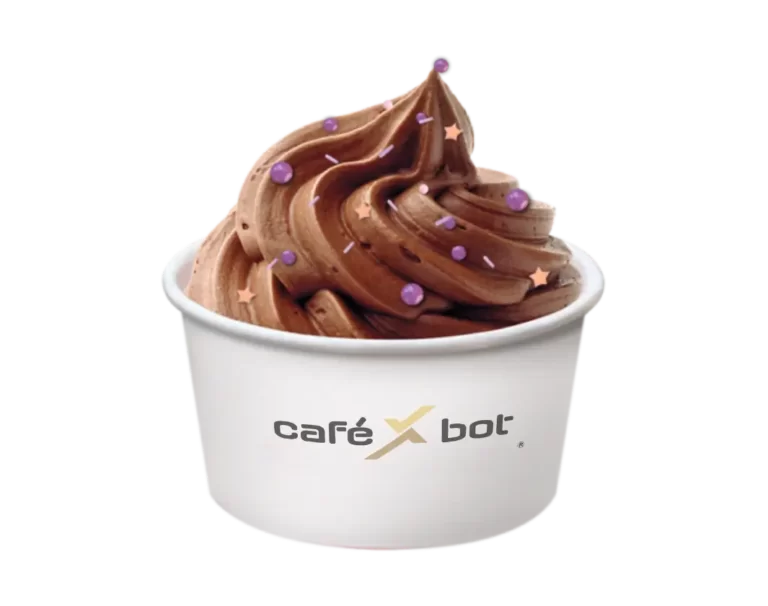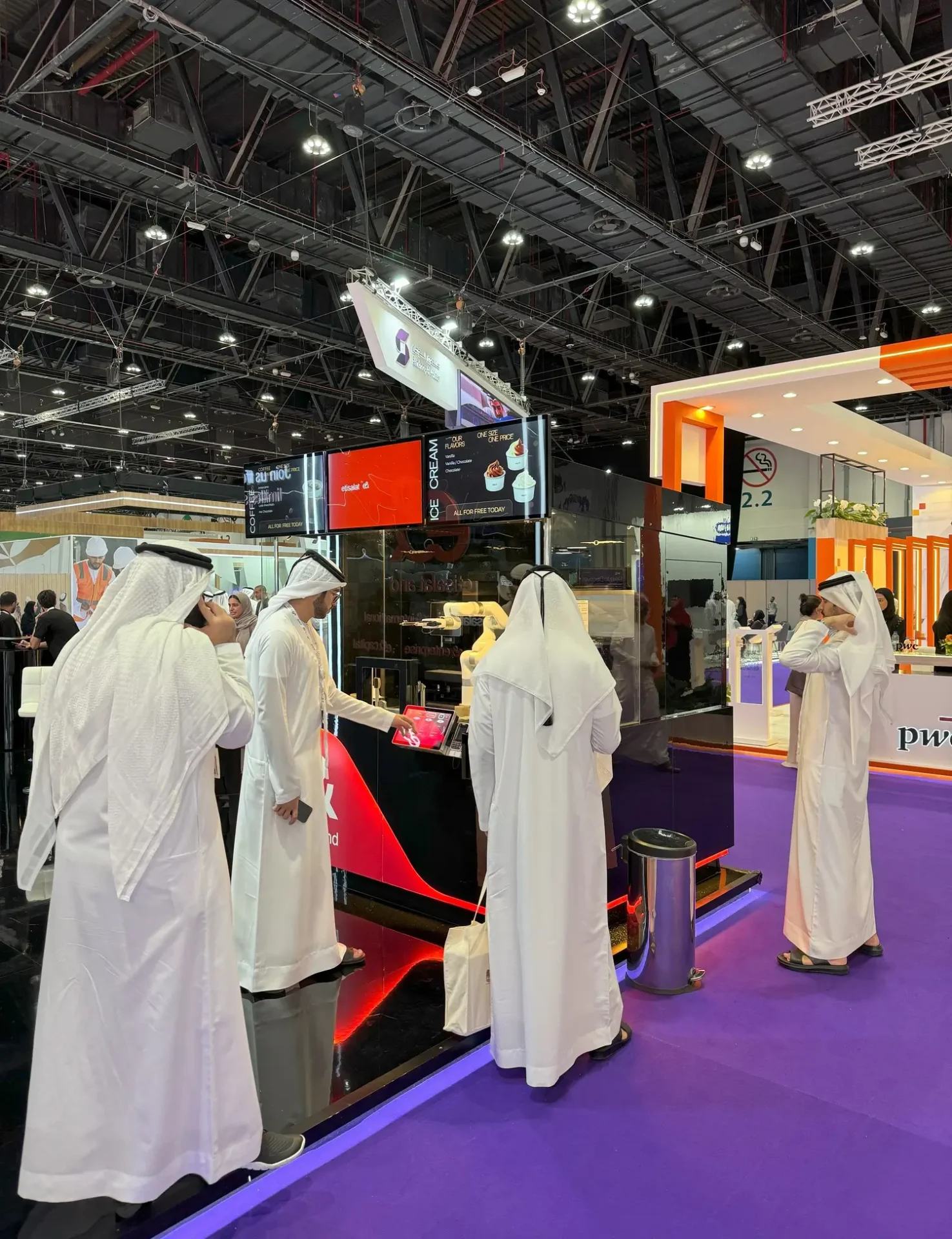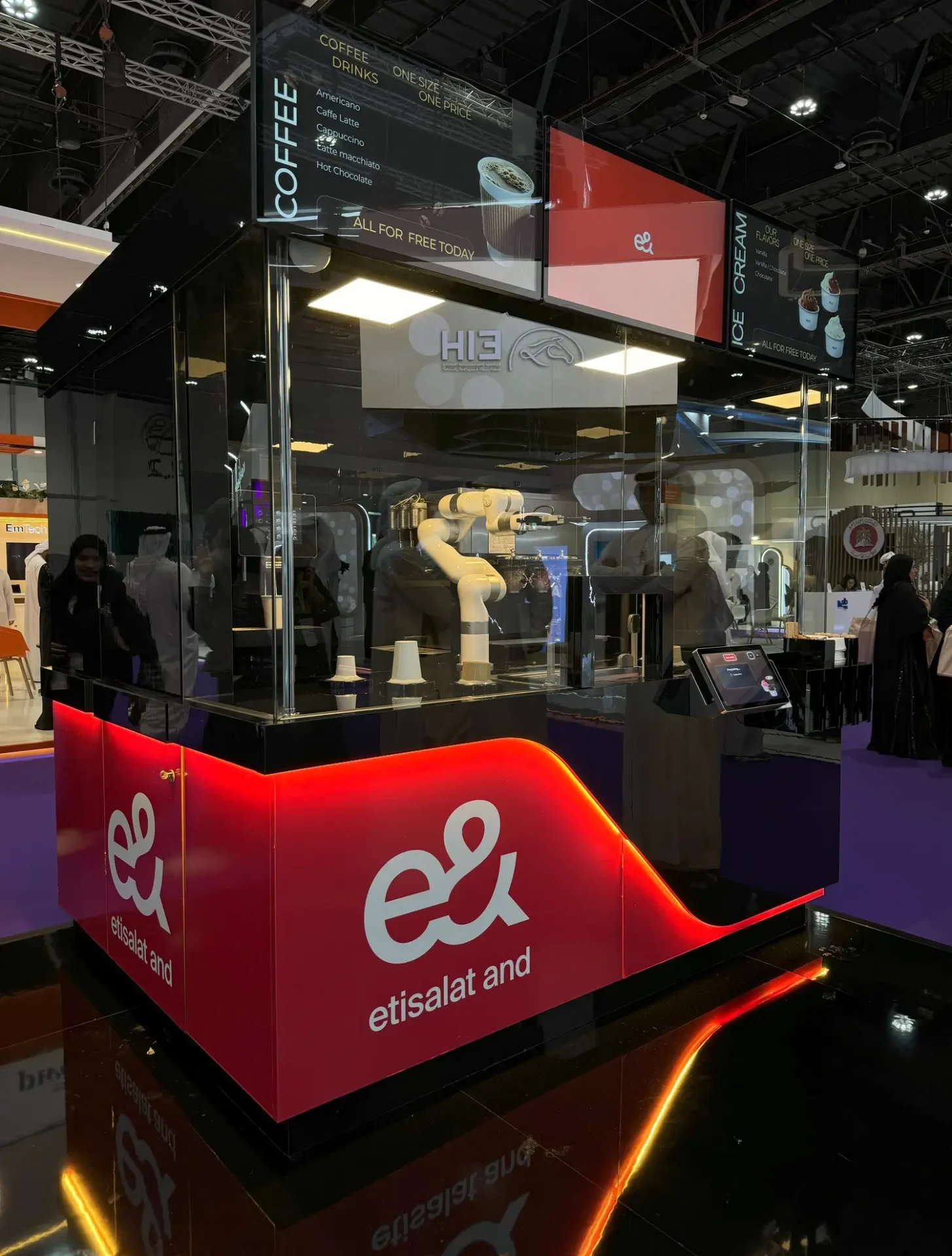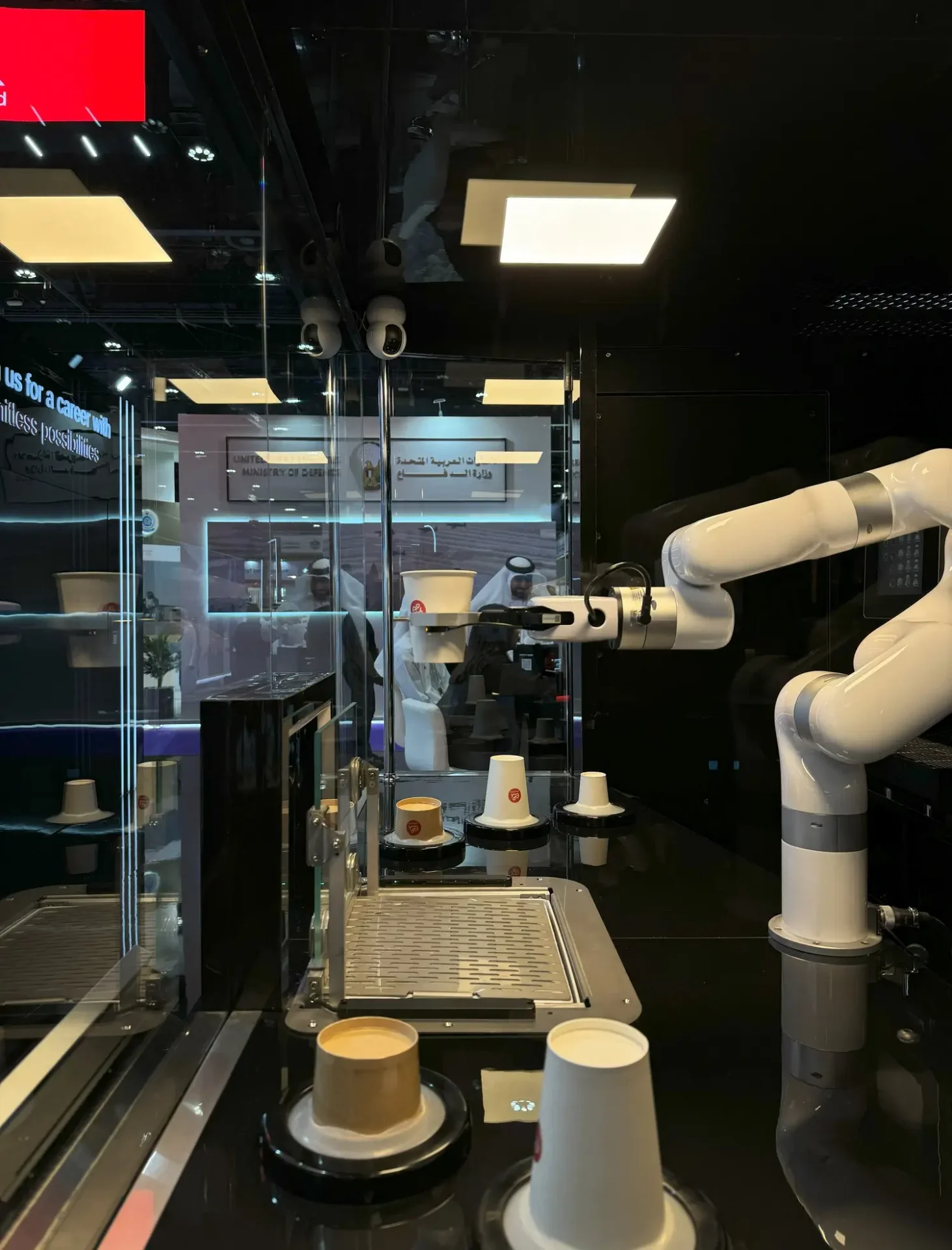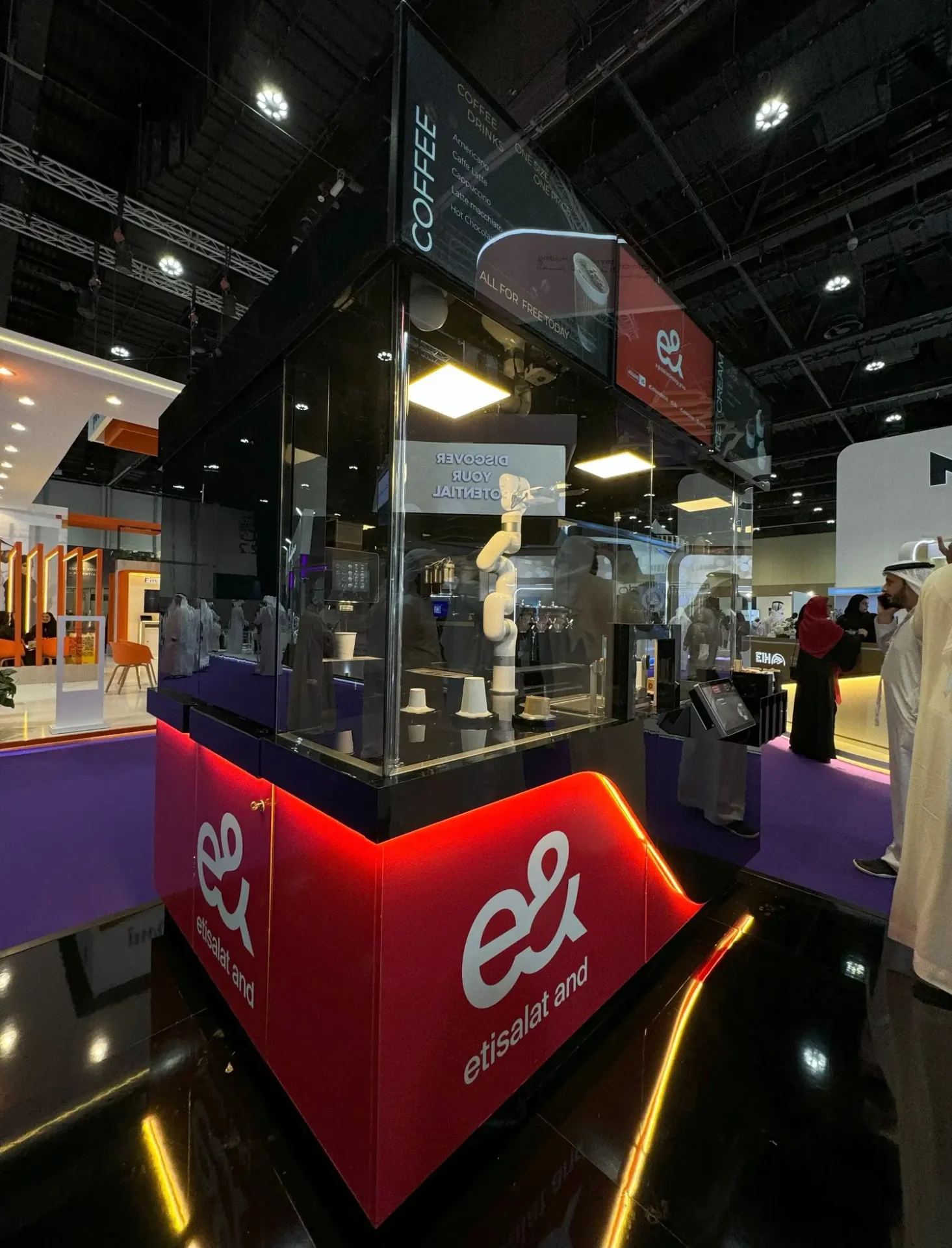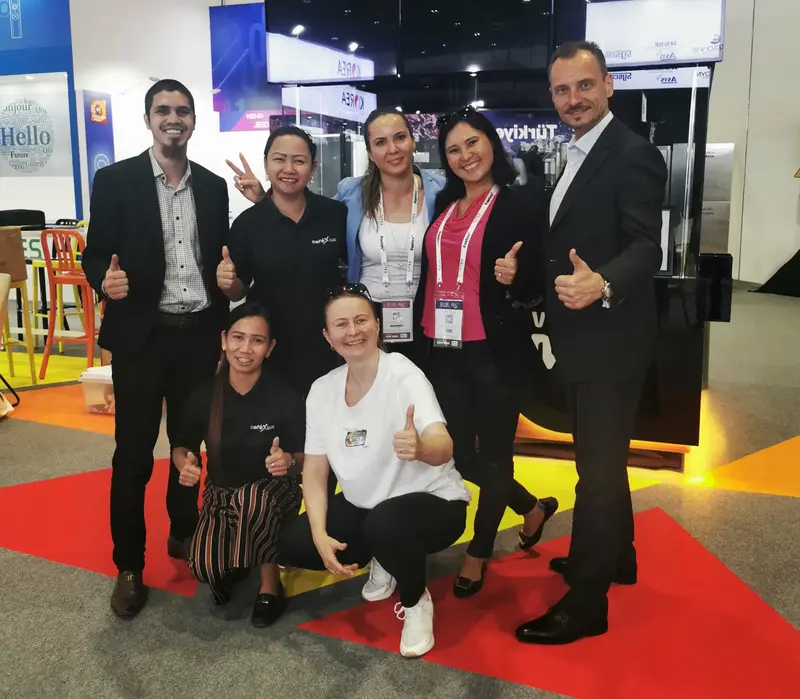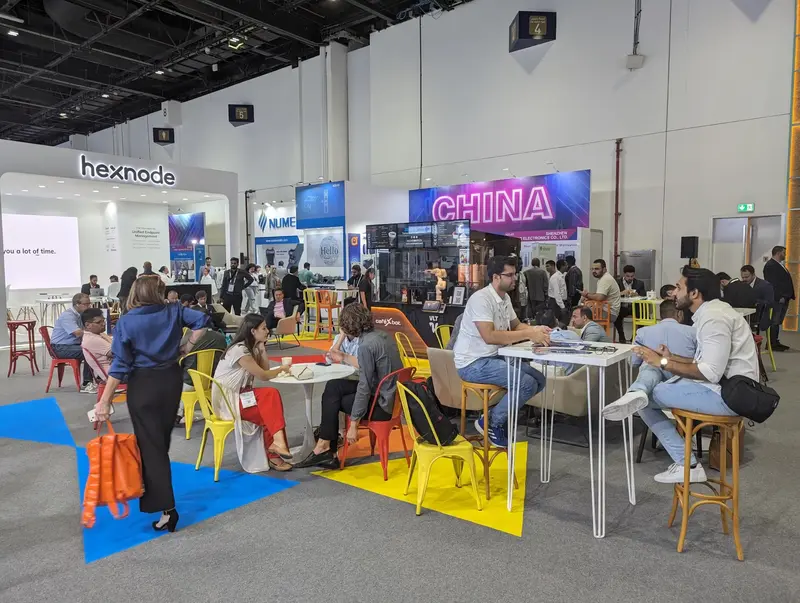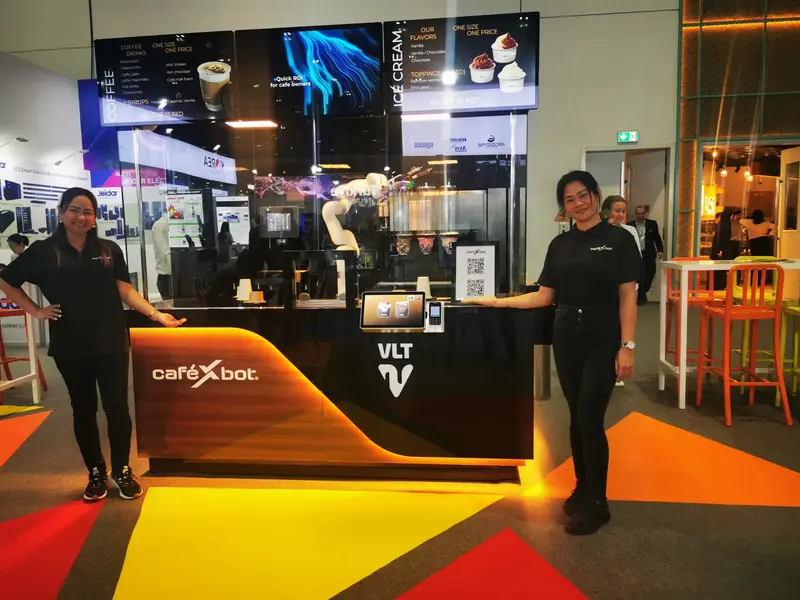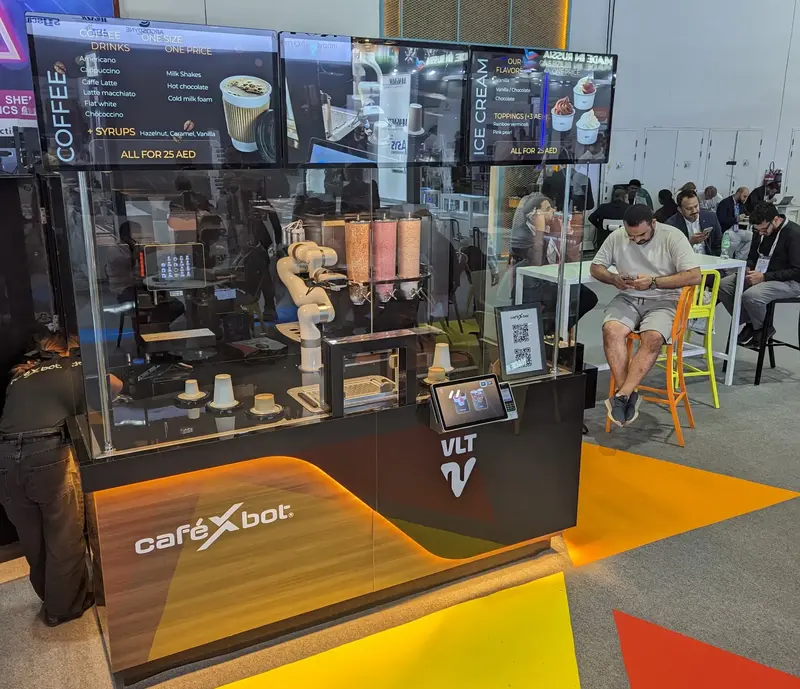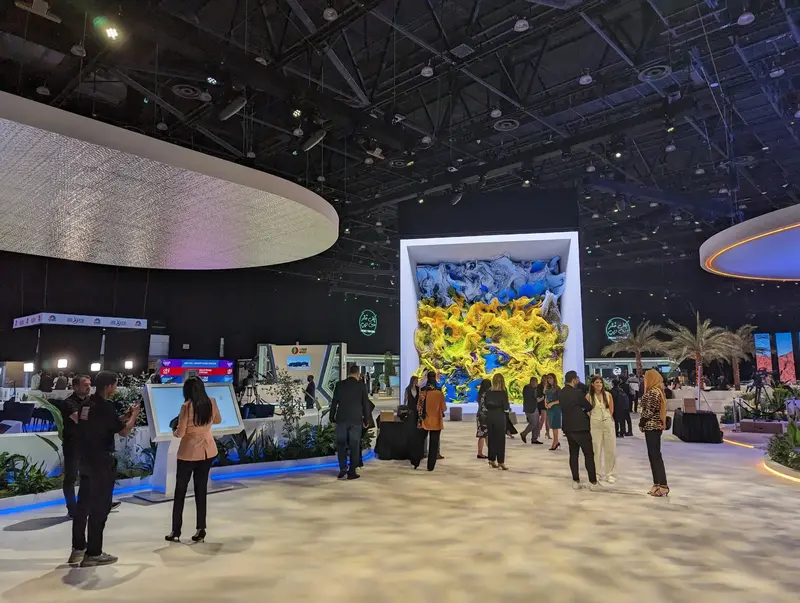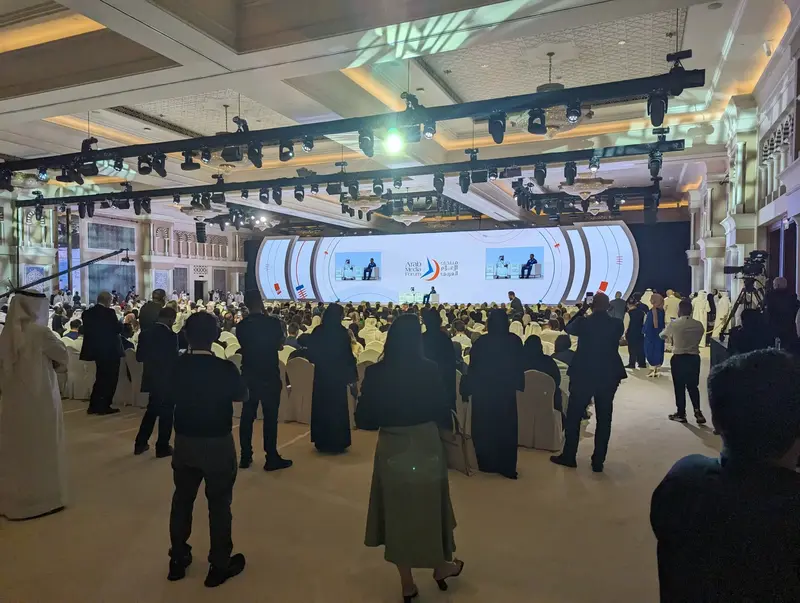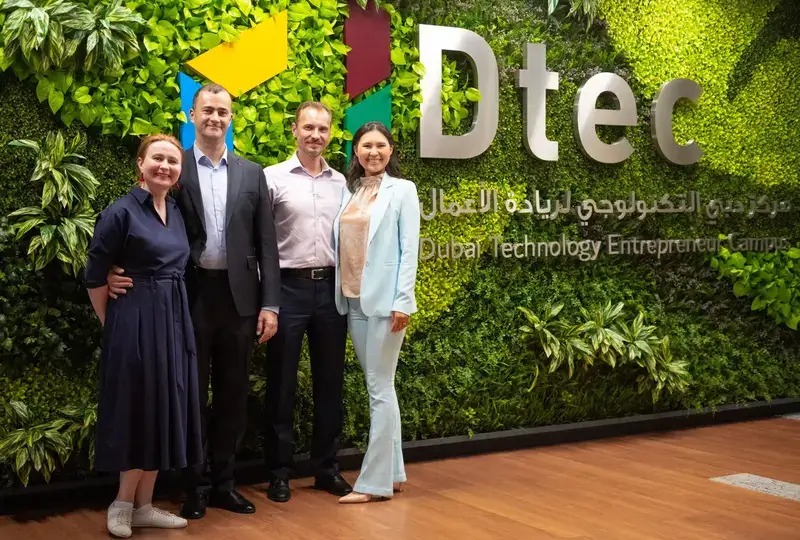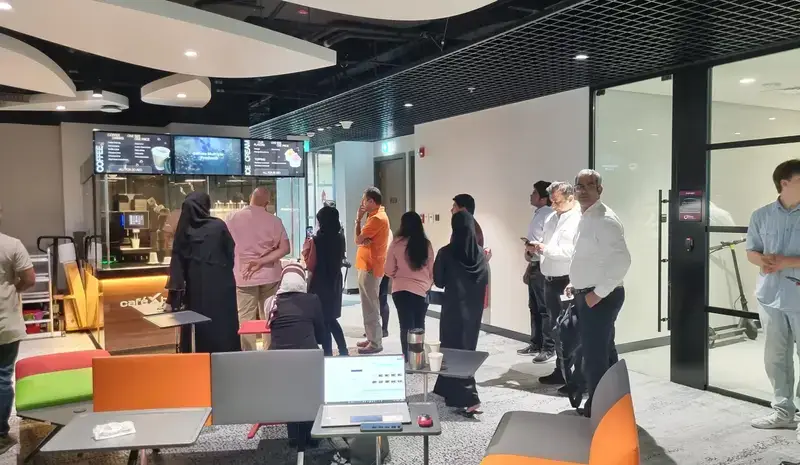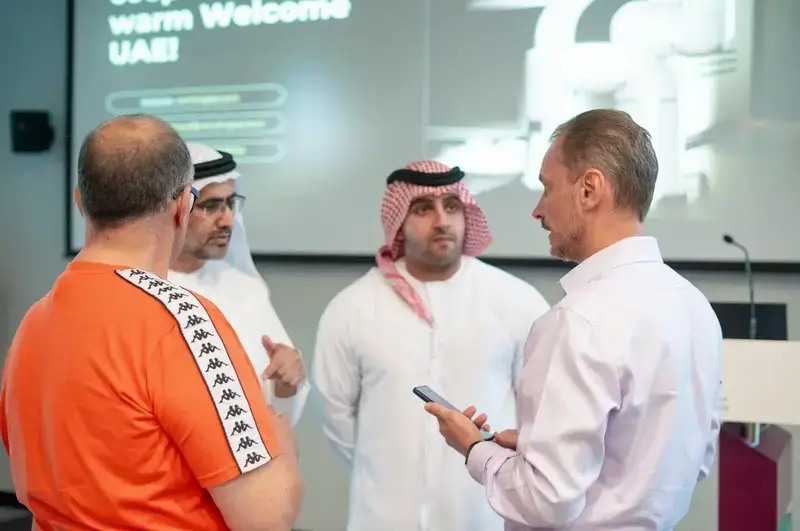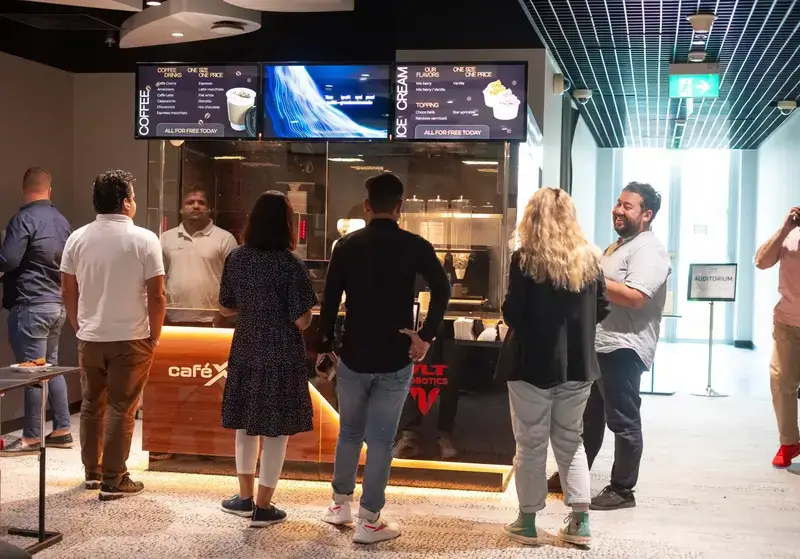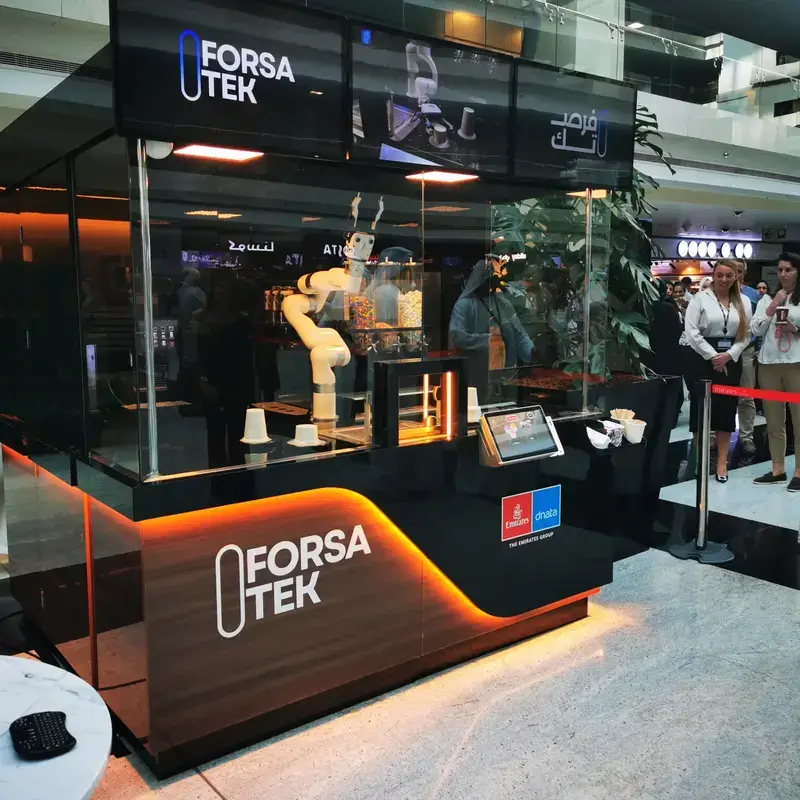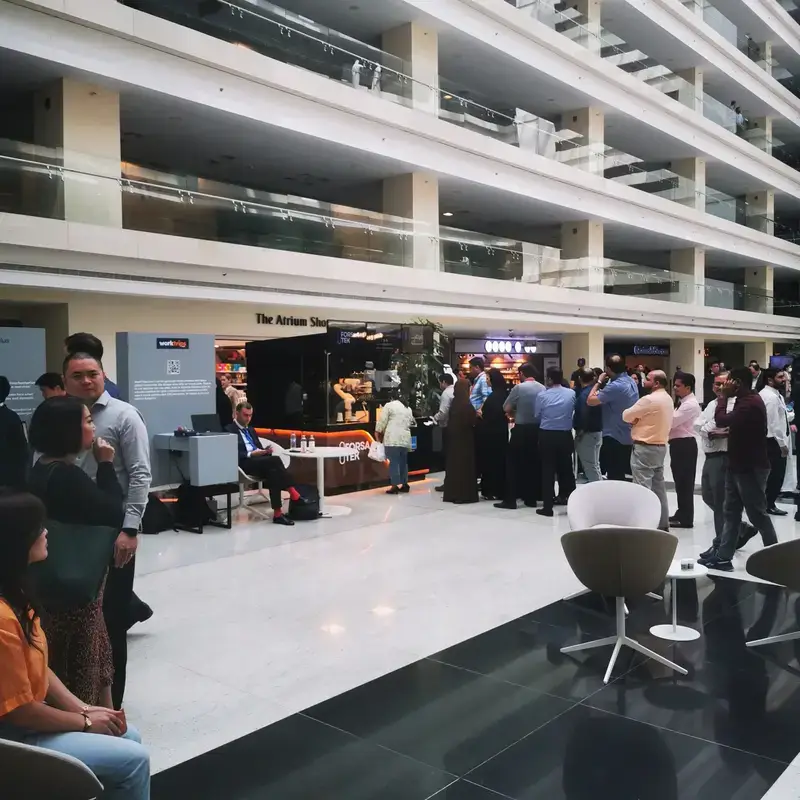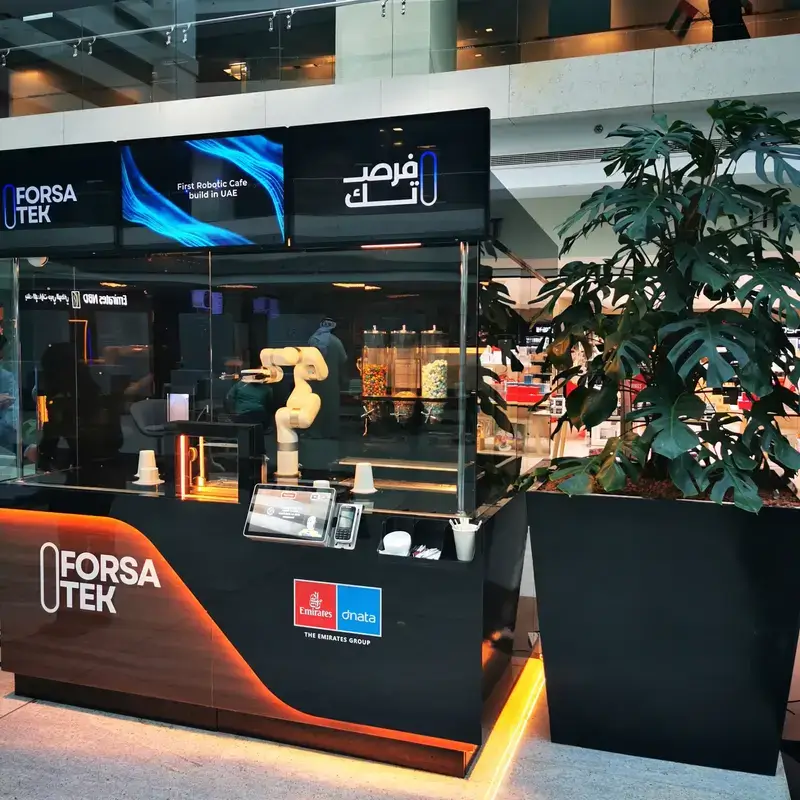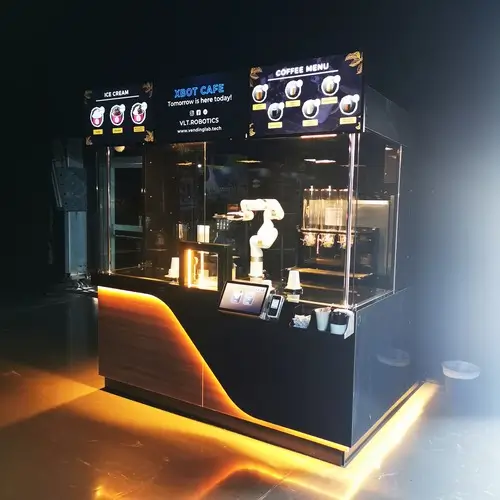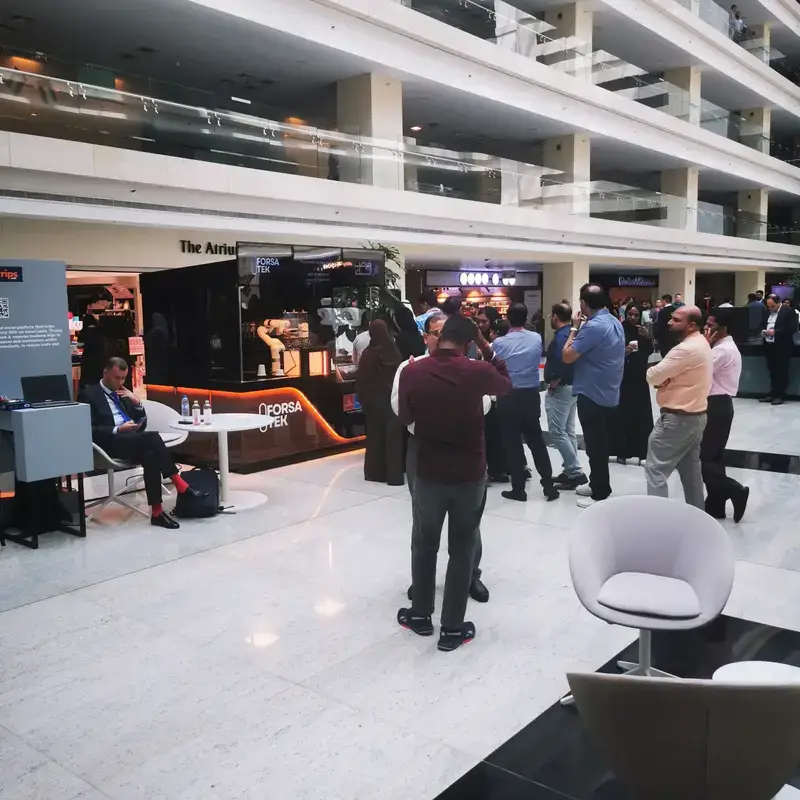
The Future of Coffee Shops in 2025 How the Best Robot Coffee Shop Revolutionizes the Industry
The coffee shop industry is on the brink of a transformative revolution as we look towards 2025, driven by advancements in automation and technology. According to a recent report from IBISWorld, the global coffee shop market is projected to reach a staggering $45.4 billion by 2025, with consumer demand increasingly favoring convenience and efficiency. Amidst this evolving landscape, the emergence of the Robot Coffee Shop stands out as a game-changer, combining cutting-edge robotics with personalized service. These pioneering establishments not only enhance operational efficiency but also cater to a tech-savvy clientele eager for innovation in their daily brews.
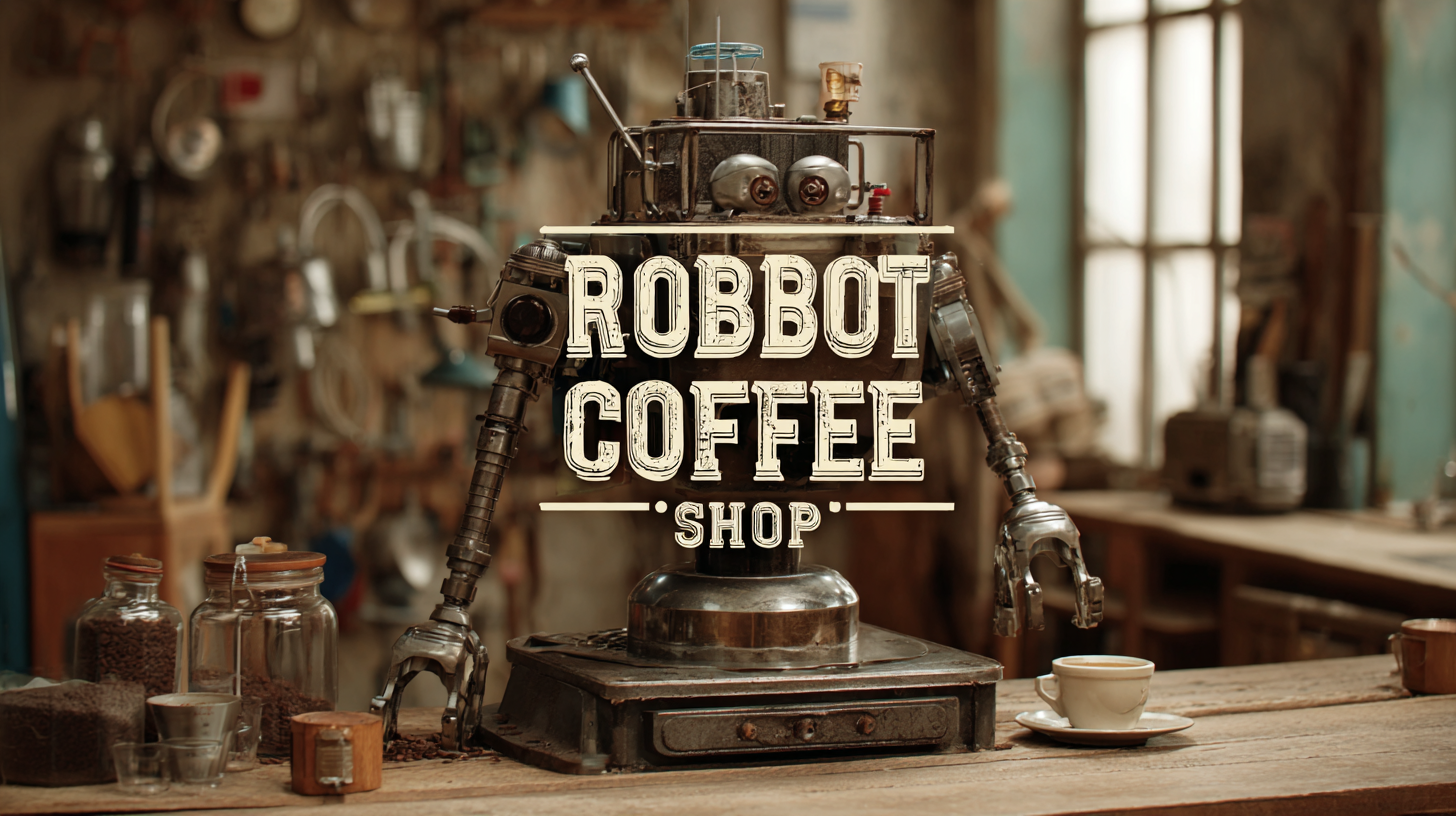
As labor costs rise and the quest for sustainability intensifies, Robot Coffee Shops are poised to redefine the customer experience, offering quicker service and consistent quality, all while minimizing their environmental footprint. The future is indeed bright for the integration of robotics in coffee culture, promising an exciting shift in how we enjoy our favorite caffeinated beverages.
The Rise of Robot Baristas: Enhancing Efficiency in Coffee Shops
As coffee culture continues to evolve, the rise of robot baristas is transforming the landscape of coffee shops. Automated coffee outlets like Cafe X in San Francisco exemplify this trend, utilizing high-volume espresso systems driven by robotics to not only speed up service but also enhance accuracy in beverage preparation. A recent report indicates that the global coffee automation market is expected to reach USD 1.1 billion by 2025, driven largely by advancements in artificial intelligence and robotics. This adoption of technology allows coffee shops to serve customers efficiently, minimizing wait times significantly—a crucial factor for busy urban areas.
Moreover, the emergence of AI-powered baristas is proving to be more than just a gimmick; it challenges the traditional perception of customer interaction in cafes. While some skeptics question whether robots can truly replace the personal touch of human baristas, data shows that consumers are increasingly accepting of automated services. For instance, a survey revealed that 58% of coffee drinkers are willing to order from a robot if it means reducing their wait time. This shift indicates a blending of technology and customer expectations, suggesting that robot baristas could soon become commonplace in various coffee establishments, from bustling city centers to transportation hubs.
Diverse Product Offerings: Exploring Unique Coffee Alternatives
As we step into 2025, the coffee shop landscape is rapidly evolving, particularly with the advent of robotic technology. One of the most significant trends emerging is the diversification of product offerings, which go beyond the traditional espresso and drip coffee. A recent report from the Specialty Coffee Association indicates that nearly 30% of coffee consumers are now actively seeking unique coffee alternatives—ranging from cold brews infused with exotic flavors to plant-based milk options that cater to a growing vegan demographic. This shift not only responds to changing consumer preferences but also enhances the overall café experience.
Moreover, the integration of robotics in coffee shops allows for seamless customization of these diverse offerings. Studies show that 72% of millennials are willing to try beverages that integrate technology, such as AI-driven flavor pairings or automated brewing techniques that ensure consistency and quality. With robot baristas at the helm, shops can efficiently serve a variety of innovative drinks, including nitro coffee and herbal infusions, all while keeping production costs down. This transformation in the coffee shop environment signifies a broader trend towards personalized, health-conscious, and eco-friendly choices that redefine what it means to enjoy a cup of coffee today.
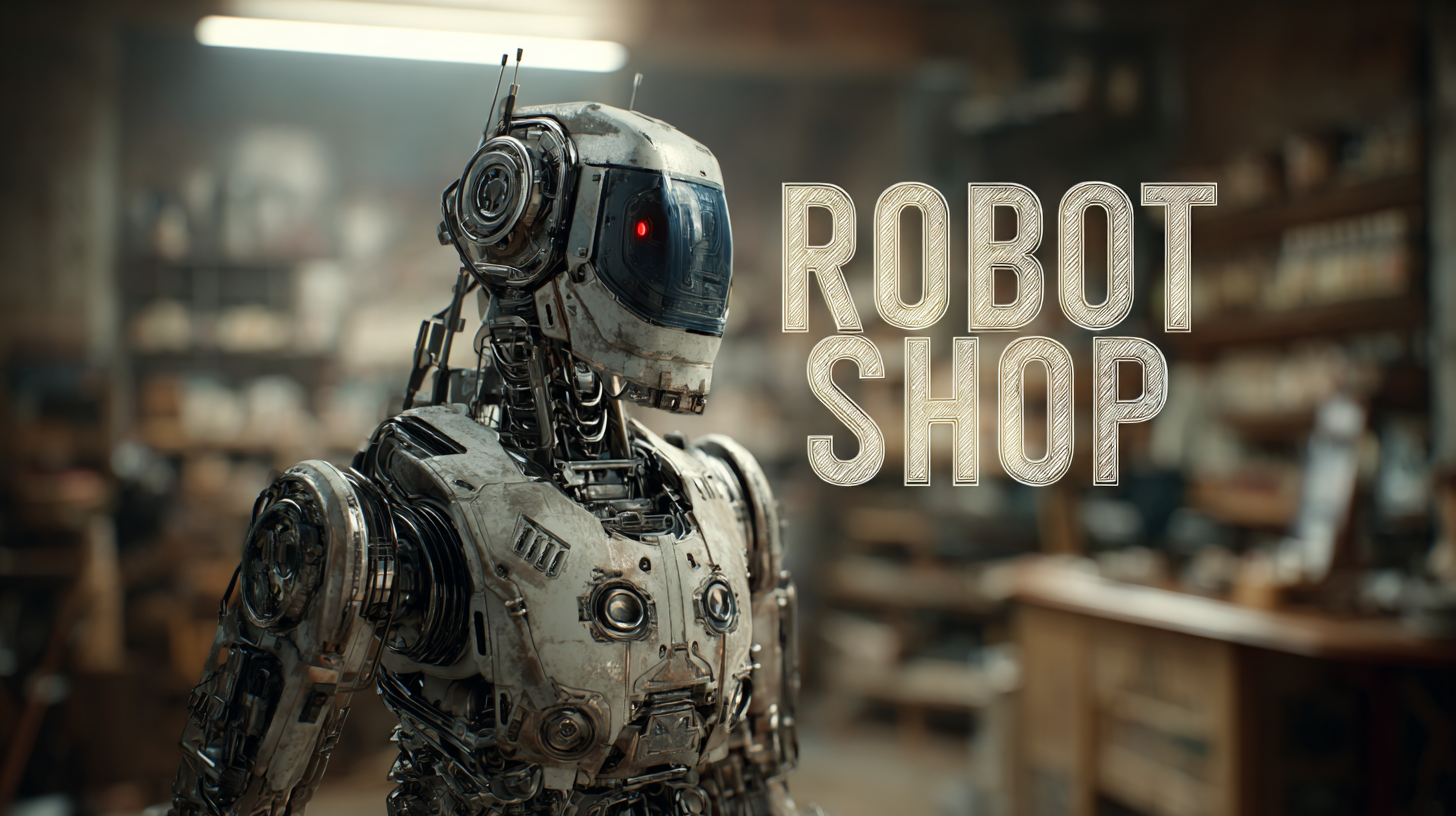
Customization and Personalization: The Future of Coffee Orders
The future of coffee shops in 2025 is set to be transformed by innovation in customization and personalization, shaping the way customers interact with their favorite beverages. With a growing preference for cold drinks that now dominate a significant portion of sales, coffee shops will need to leverage technology to meet an increasing demand. This year, the surge in cold espresso beverages highlights the shifting tastes of consumers, who are not just looking for quality but want an experience tailored specifically to their desires.
Personalization will be at the forefront of this evolution, driven by data analytics and customer insights. By utilizing these tools, coffee shops can create bespoke coffee orders that cater to individual preferences, enhancing customer satisfaction and loyalty. As businesses embrace these customization strategies, they will not only cater to the growing trend of plant-based options but also adapt to the fast-paced digital landscape where customers expect their needs to be anticipated. In this new era of coffee consumption, the essence of the coffeehouse experience will be redefined, blending technology with the rich traditions of coffee culture.
Sustainability in Robotic Coffee Shops: Eco-Friendly Practices
As we look towards the future of coffee shops in 2025, robotic cafes are poised to lead the way in sustainability. These innovative establishments are not just about high efficiency and speed; they also prioritize eco-friendly practices that significantly reduce their carbon footprint. The integration of robotics allows for precise ingredient measurement, minimizing waste. For instance, systems can be programmed to brew only the precise amount of coffee ordered, eliminating the waste associated with overproduction—a common issue in traditional cafes.
Moreover, many robotic coffee shops are harnessing renewable energy sources, such as solar panels, to power their operations. This not only reduces reliance on fossil fuels but also appeals to the environmentally-conscious consumer. Coupling these energy solutions with eco-friendly packaging and composting initiatives further cements their place as trailblazers in sustainable practices within the foodservice industry. By creating a seamless blend of technology and sustainability, these coffee shops are setting a new standard for what it means to be responsible in today’s market.
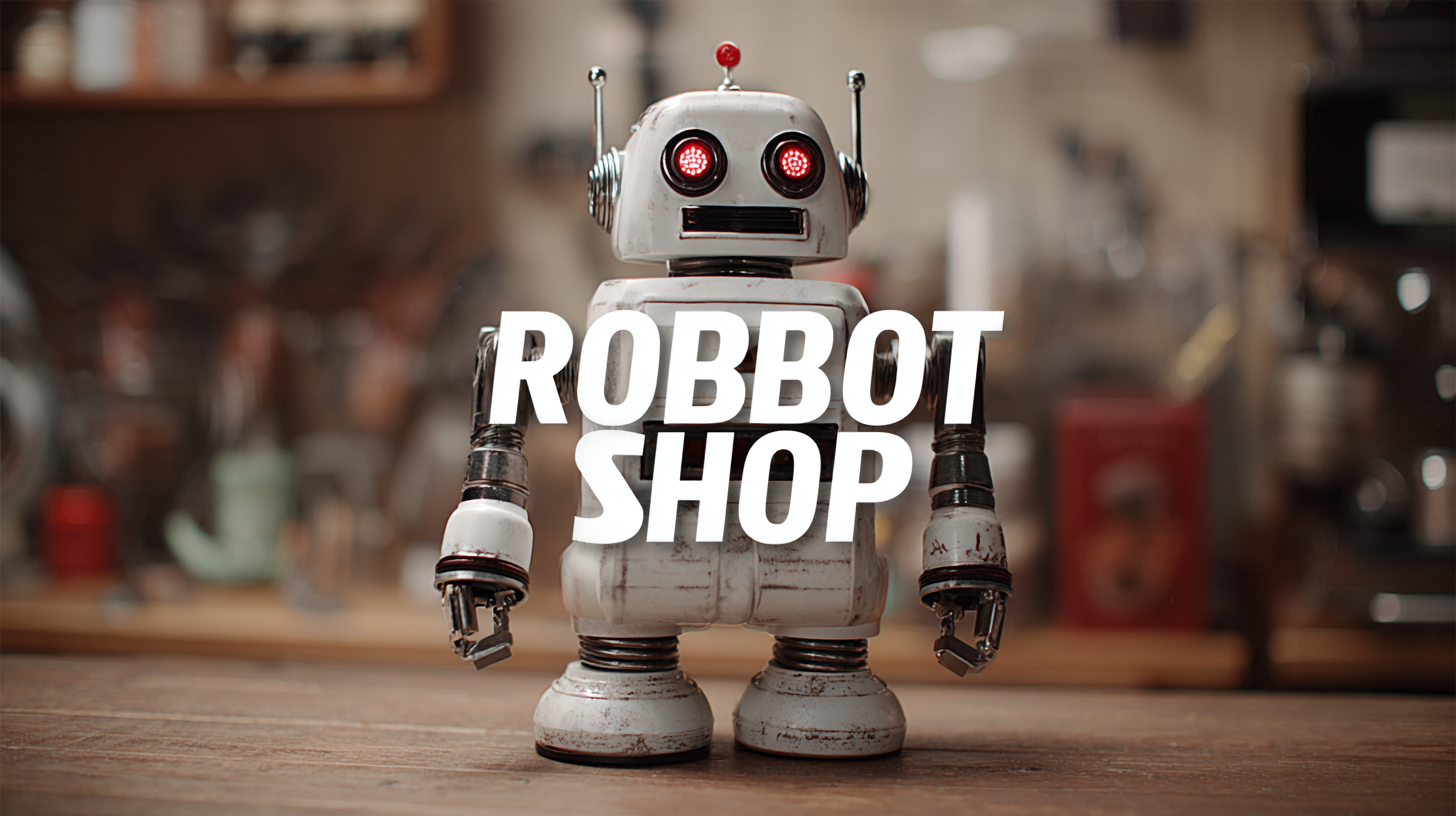
Consumer Experience: How Technology is Transforming Coffee Culture
As we look towards 2025, the coffee shop landscape is poised for a revolutionary transformation driven by technology. Robot coffee shops are at the forefront of this change, integrating artificial intelligence and automation to enhance consumer experience. These automated baristas not only brew the perfect cup of coffee but also personalize beverages according to customers' preferences in real-time. By analyzing data from previous orders and customer feedback, these robots can offer tailored recommendations that delight the palate while streamlining service efficiency.
The rise of technology in coffee culture extends beyond just robotic baristas. Smart devices enable seamless ordering through apps, allowing customers to skip the line and have their favorite drinks ready upon arrival. Additionally, augmented reality (AR) experiences could allow consumers to explore coffee origins and brewing techniques interactively, deepening their appreciation for the craft. This harmonious blend of technology and coffee culture not only revolutionizes the way we enjoy our beverages but also creates a more engaging and informed consumer journey, setting a new standard for coffee shops in the future.







